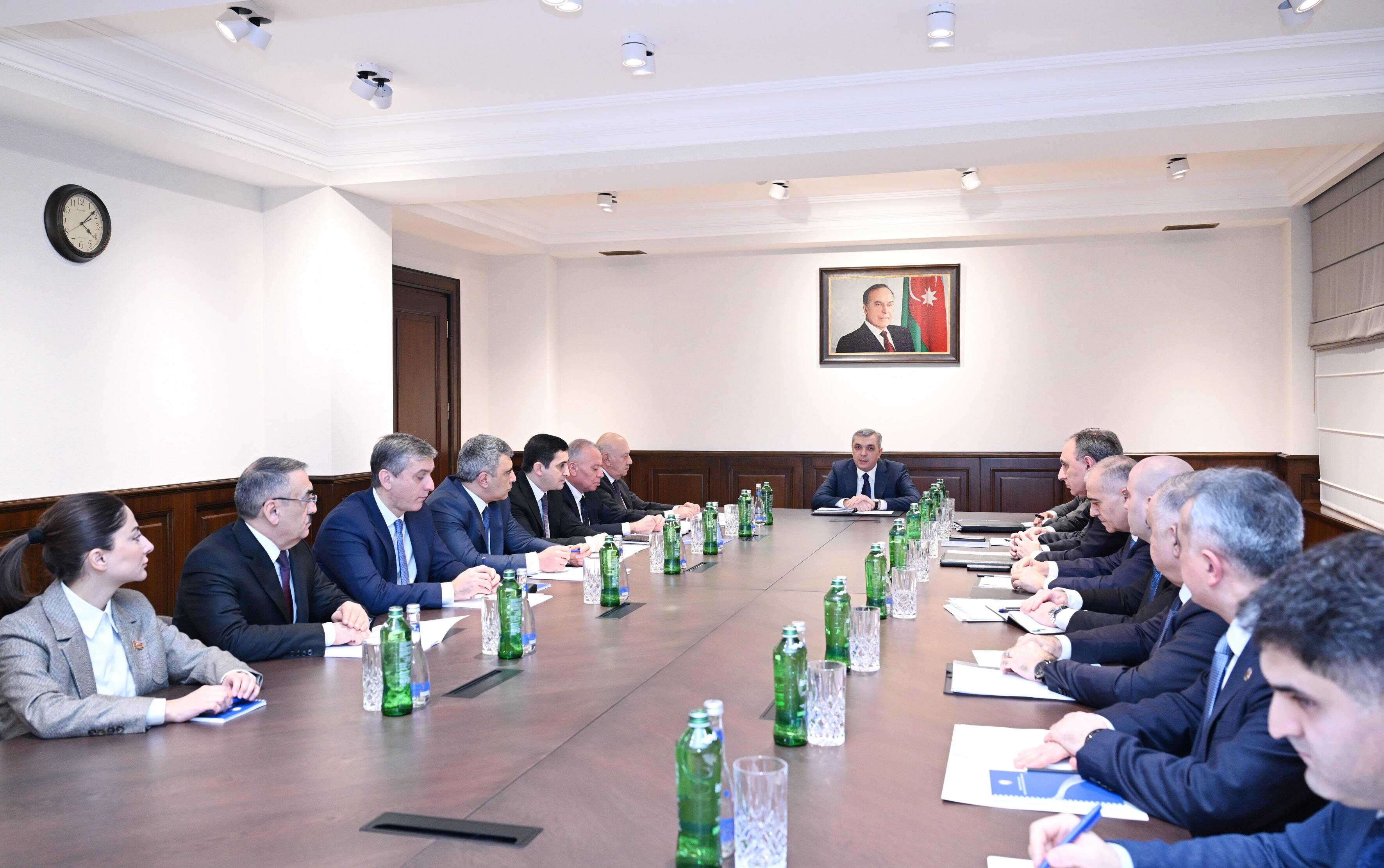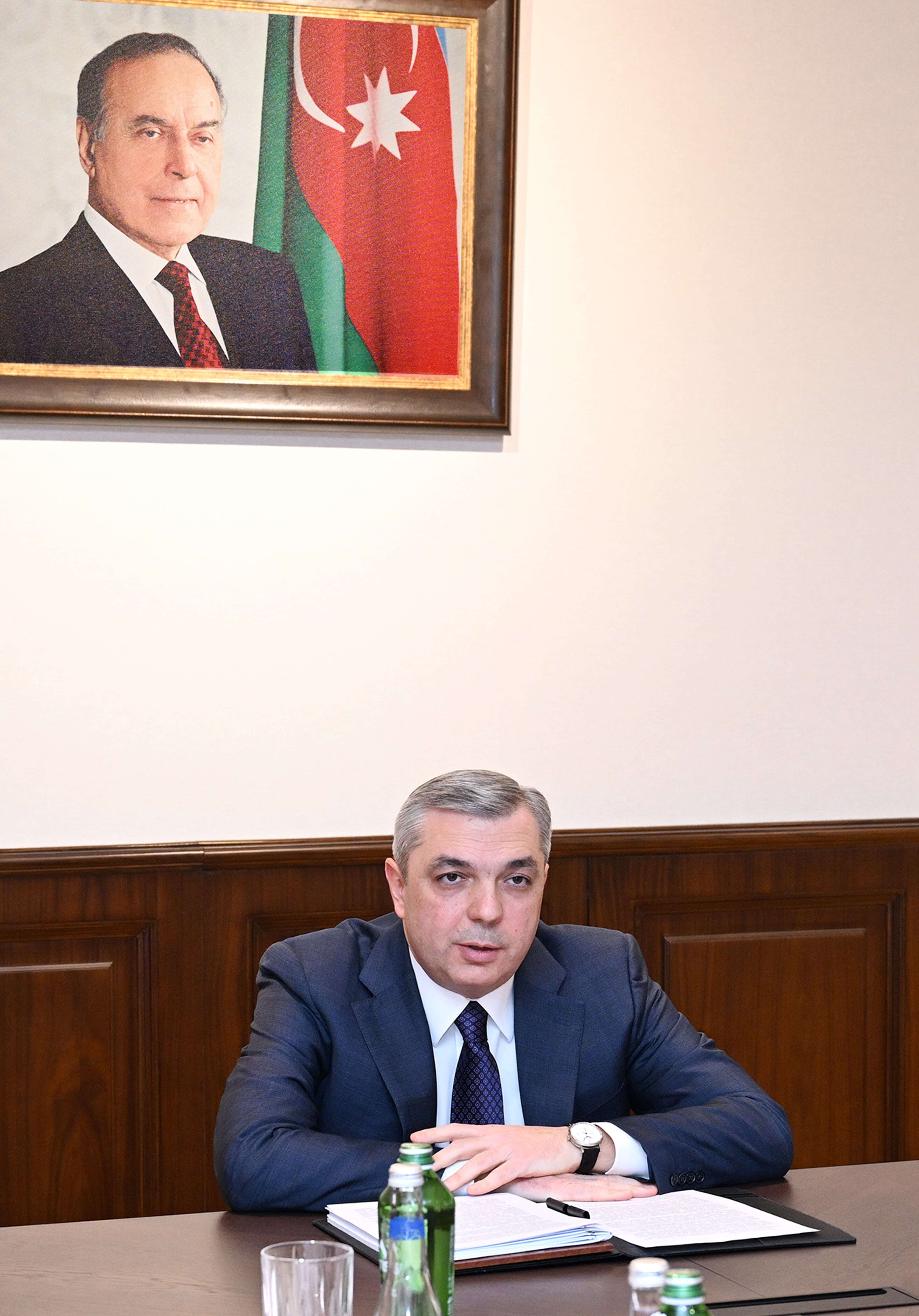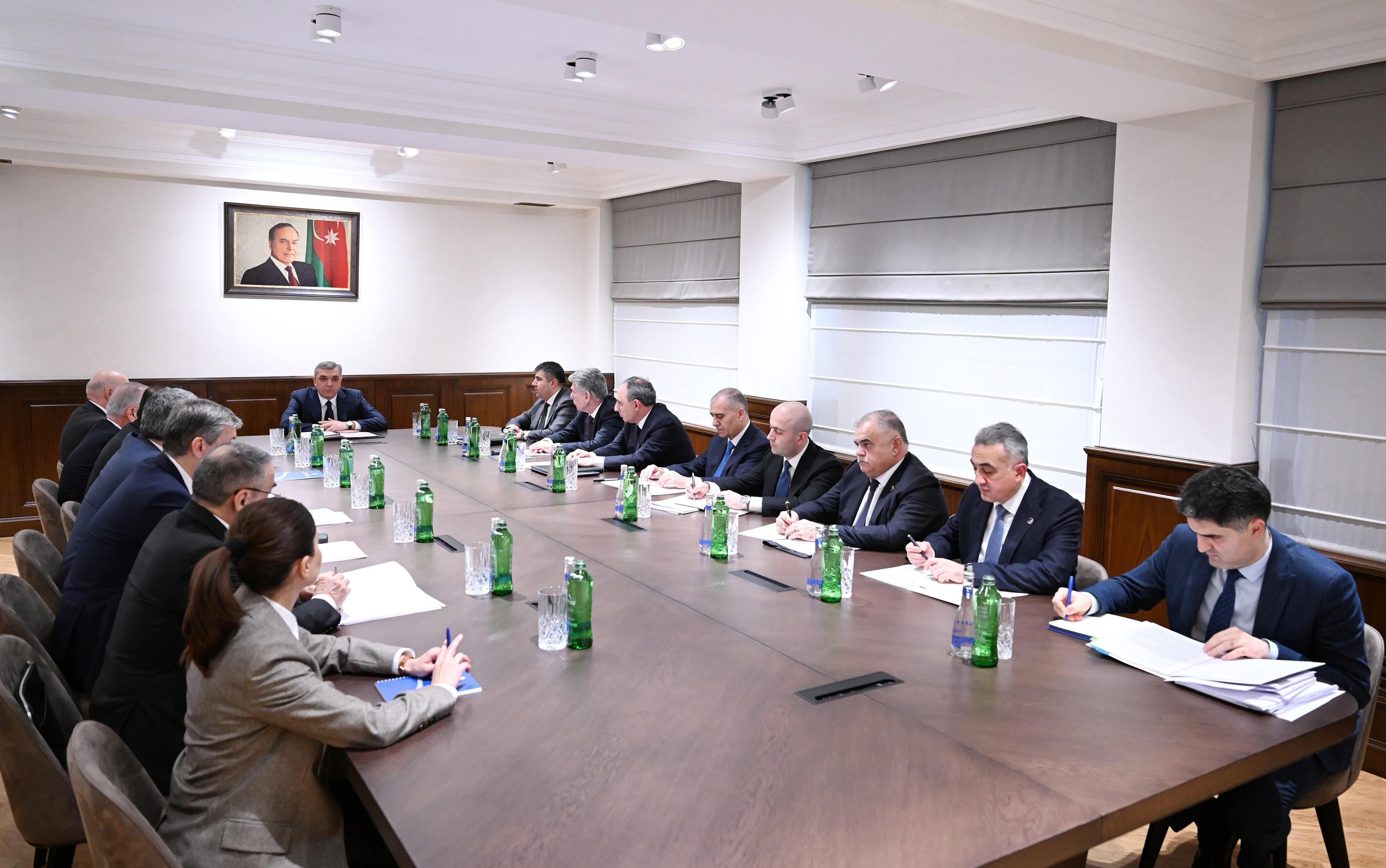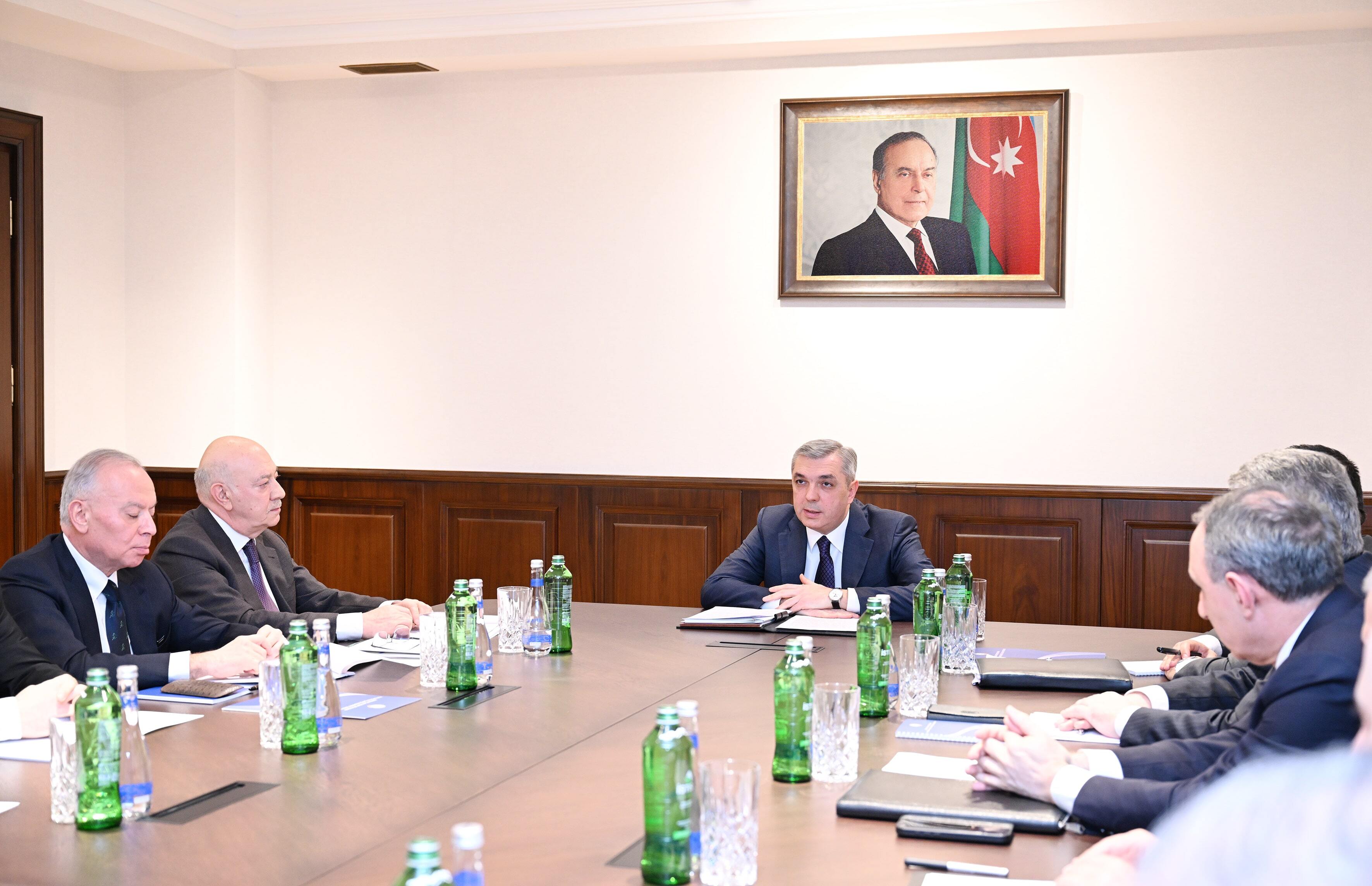
The notice of the Anti-Corruption Commission of the Republic of Azerbaijan
On February 6, a meeting of the Commission on Combating Corruption of the Republic of Azerbaijan was held.
The Chairman of the Commission, Samir Nuriyev, addressed the meeting participants, emphasizing the key responsibilities of the Commission in achieving the goals set by the President of the Republic of Azerbaijan, Ilham Aliyev, in the field of combating corruption. He noted that throughout 2024, continuous measures have been implemented to enhance efficiency in public administration, strengthen transparency, and advance anti-corruption efforts.
Furthermore, the Chairman highlighted that combating corruption is of critical importance in consolidating the achievements gained through the socio-economic reforms carried out under the leadership of President Ilham Aliyev. He stressed that anti-corruption measures are essential for structuring the activities of state institutions in accordance with modern requirements and strengthening public trust in government bodies. Additionally, the new challenges related to increasing accountability and responsibility in state institutions, as well as ensuring the proper management of public assets, necessitate a systematic and continuous approach to anti-corruption activities.
During the meeting, the newly appointed members of the Commission, elected by the Milli Majlis (Parliament) of the Republic of Azerbaijan, were introduced, and issues related to international cooperation in combating corruption were discussed. As part of this cooperation, the progress made in implementing the recommendations provided within the framework of the 5th evaluation round of the Group of States against Corruption (GRECO) was reviewed.
A report on the impact of recent judicial and legal reforms on anti-corruption efforts was presented at the meeting, followed by discussions on proposals to enhance transparency in this sector and eliminate conditions facilitating corruption. Additionally, opinions were exchanged on identifying, analyzing, assessing, and preventing corruption risks in the activities of state institutions.
Moreover, the Commission’s Regulation and work plan for the upcoming period were approved.






